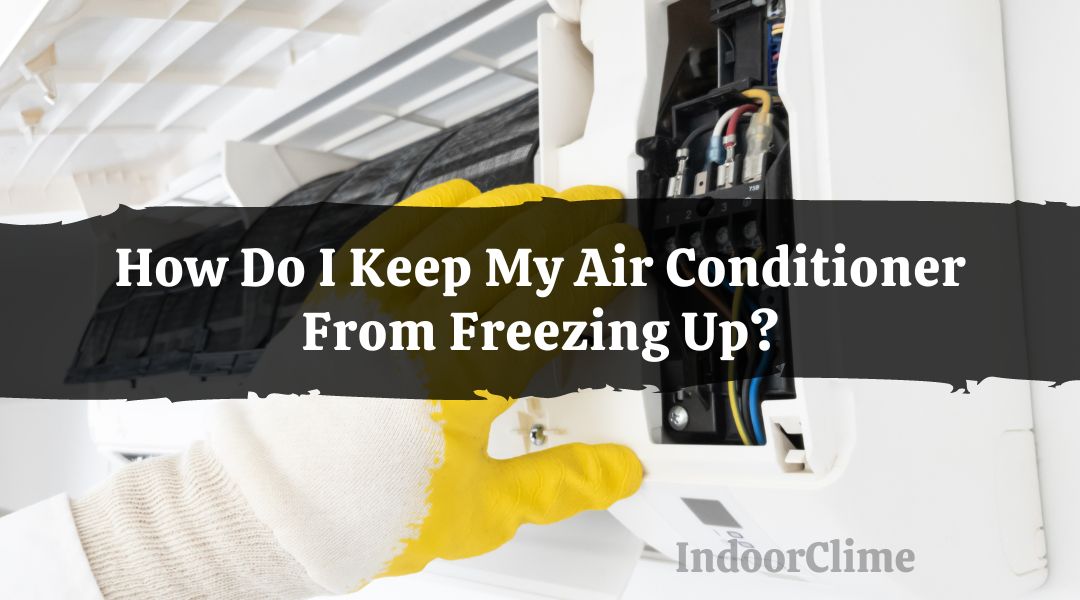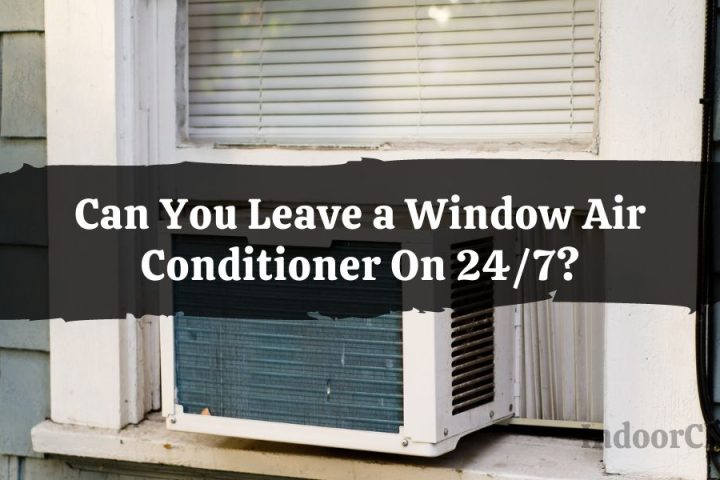Freezing AC issues can be frustrating. Many people are unsure how to prepare for freezing AC, which can mean having an expensive breakdown.
This article will look at different ways to keep your AC from freezing.
Air conditioners can freeze up for various reasons: insufficient refrigerant, poor airflow, and dirty coils can all cause the problem.
To restrain your air conditioner from freezing up, ensure the condensate drain is debris-free, check the outside unit for waste, and ensure it’s not exposed to direct sunlight.
Why Is My Air Conditioner Freezing Up? What Causes It To Freeze?
One of the most common issues we have regarding air conditioner repair is an issue called “freezing up.”
When your AC unit freezes and can no longer function, it happens because your AC system runs low on refrigerant, and you may need an air conditioning repair service to fix it.
When an air conditioner freezes up, this process is disrupted. The various factors that can cause this disruption include:
Clogged Air Filters
A clogged air filter is one of the biggest causes of an AC freeze-up. The filter must be clean to allow enough air to flow into the unit.
When the filter is dirty or blocked with debris, there won’t be enough airflow through the system, leading to freezing coils.
It would help replace or clean your filters regularly to prevent this from happening.
Low Refrigerant Levels
Your AC unit should have enough refrigerant to last for its entire lifespan. However, if you think your AC unit was freezing and not blowing cold air, you may have depressed refrigerant levels in your system.
Your system can leak refrigerant for poor installation or everyday wear.
Clogged Condensate Lines
Your condensate line drains the water collected in the AC unit as it runs. If this line gets clogged, it can cause water to back up in the unit and freeze over the evaporator coil.
You’ll want to clean this line immediately to prevent further damage.
Damaged Blower Fan
The blower fan blows air over the refrigerant that cools down inside your AC unit.
When this Fan is damaged, it doesn’t blow enough air over the refrigerant, causing a frost buildup on the evaporator coil.
You’ll want to maintain this before it causes more damage to your system.
Insufficient Fan Speed
If the fan isn’t blowing quickly enough, it can cause the unit to freeze up.
The heat exchange process is too slow, and the relative humidity levels in the immediate vicinity are too high.
The water ends up freezing on the unit before being drained off properly.
Dirty Coil
If the coil is dirty, it will also start to freeze up. It happens because the locks have no clean and consistent airflow path.
Instead, the airflow gets blocked and diverted by dirt and debris, resulting in uneven temperatures and higher humidity levels near the unit.
In addition, it leads to ice forming on parts of the coil that don’t have sufficient airflow—e.g.; there are gaps or holes in its surface that allow water to accumulate more quickly.
Thermostat Problems
If your thermostat is not communicating with your system correctly, this can cause your unit to freeze up.
Sometimes the trouble is as simple as replacing the batteries in the thermostat.
So that it can communicate with the rest of your system again; other times, the problem is more severe and requires rewiring or replacing parts to work correctly again.
Drainage Problems
Your AC also needs water to function correctly. It uses evaporation to cool air before circulating it throughout your home or other space with an HVAC system, so if it doesn’t have enough water to evaporate, you’ll get ice rather than cool air.
It could happen if there’s a leak in the system. Water is escaping instead of being used up by the AC.
What To Do If an Air Conditioner Freezes?

If you suspect that your air conditioner has frozen, don’t panic. It’s a very fixable problem.
However, you’ll want to take care of it as soon as possible before the ice thaw and cause water damage in or around your home.
Here’s what you need to do:
- Turn Off the System. First, turn off the system by setting the thermostat to Fan Only. It will allow the unit to defrost without using any coolant.
- Turn Off the Circuit Breaker. Go outdoors and turn off the circuit breaker for your AC system.
- Drain the water. If you’ve got a bucket handy, place it under one of the drains (usually on the side of a wall-mounted unit) and open it up to drain any excess water.
- Change the Air Filter. After draining out all the water, change your air filter if necessary. It will help eliminate debris blocking airflow in and out of the unit.
- Check for ice blockage in the coils or fins of the unit—if there’s any buildup here, try de-icing them with an ice pick or steam cleaner before turning them on again so that they don’t freeze up again.
- Inspect all ducts and vents to ensure they’re clear of debris and not leaking—these can also cause freezing.
How Do I Keep My Air Conditioner From Freezing Up?
While fixing this problem can be a bit of a process, there are ways you can try to prevent it from happening in the first place.
Here’s how:
- Check the refrigerant line for any frost. If there is frost on the refrigerant line, turn off your thermostat and call a repair specialist to look at it.
- Check the air filter and make sure it is clean. If you see any dust or debris, replace the air filter with a new one.
- Turn up the temperature on your thermostat. If your air conditioner has frozen up because of warm weather, increasing the temperature can help stop it from freezing up again.
- Make sure your thermostat is set correctly. If you have accidentally set your thermostat too low, this will cause the system to freeze up.

Is It Normal For an AC Unit To Freeze Up?
Yes, it’s normal for an AC unit to freeze up.
Because of how an air conditioner works, it’s normal for the unit to develop frost buildup or even ice in certain situations.
As the air conditioner runs, it removes humidity from the air. The moisture from this humidity can then settle on the coils and freeze over time.
Most of the time, this frost will melt off on its own during the defrost cycle, which is a normal part of how an air conditioner functions.
However, suppose you notice that your unit freezes up excessively or other problems with the operation (such as low airflow). In that case, you should call a competent professional HVAC technician to investigate it further.
Can I Pour Hot Water On the Frozen Air Conditioner?
Absolutely! You can pour hot water on the frozen air conditioner. Hot water is a great way to defrost your air conditioner.
- First, you’ll want to turn off the unit. You can do this by opening your electrical panel and throwing the breaker. If you’re unsure which one, it should be labeled “AC.”
- Once your air conditioner is turned off, pour hot water on the frozen parts of it. Use a towel cloth to wipe away any ice, snow, or frost buildup.
- Next, turn on the air conditioner and let it run for about 10 minutes. It will allow everything inside it to warm up before using it again.
How Do You Defrost Outside the AC Unit In Winter?
To begin your defrosting process, make sure to follow the steps below:
- First, be sure that you turn off your unit and disconnect it from its power source.
- Next, allow the unit to thaw completely. Depending on how severe the ice buildup is, it can take anywhere from a few hours to a day. Again, you may wish to use a hairdryer to speed this process up.
- Once your unit is thawed, you will need to clean it with a microfiber cloth or towel. Again, it would help if you did not use other cleaners or solvents because these could damage your system.
- Clean up any remaining water using your towel or cloth, then dry the area thoroughly before reconnecting your AC unit to its power source and turning it back on.





